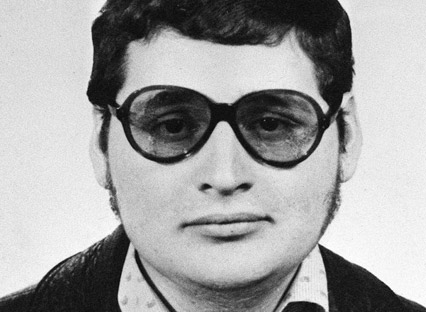Who is Carlos the Jackal and why is he on trial?
How Ilich Ramirez Sanchez became one of the world's most infamous terrorists

A free daily email with the biggest news stories of the day – and the best features from TheWeek.com
You are now subscribed
Your newsletter sign-up was successful
Carlos the Jackal, one of the world's most infamous terrorists and responsible for a series of headline-making attacks in the 1970s and early 1980s, goes on trial today for the deadly bombing of a Paris shop more than 40 years ago.
Who is Carlos the Jackal?
Born Ilich Ramirez Sanchez in Venezuela, the self-styled "professional revolutionary", the head of special operations for the Popular Front for the Liberation of Palestine, was dubbed "Carlos the Jackal" by the press, after the fictional terrorist in the 1971 Frederick Forsyth novel, The Day of the Jackal.
The Week
Escape your echo chamber. Get the facts behind the news, plus analysis from multiple perspectives.

Sign up for The Week's Free Newsletters
From our morning news briefing to a weekly Good News Newsletter, get the best of The Week delivered directly to your inbox.
From our morning news briefing to a weekly Good News Newsletter, get the best of The Week delivered directly to your inbox.
He was arrested in the Sudanese capital Khartoum in 1994, after years on the run, and is serving a life sentence for the murders of two policemen in Paris in 1975 and that of a Lebanese revolutionary.
He was also found guilty of four bombings in Paris and Marseille in 1982 and 1983, some targeting trains, which killed 11 people and injured nearly 150.
What is he being tried for now?
Ramirez, now 67, is accused of orchestrating a grenade attack on a busy shop in the heart of Paris in September 1974, in which two men were killed and 34 injured.
A free daily email with the biggest news stories of the day – and the best features from TheWeek.com
Prosecutors says the attack was linked to a hostage-taking at the French embassy in the Hague, in the Netherlands, that had begun two days before.
In an interview with Al Watan Al-Arabi magazine in 1979, Ramirez admitted to throwing the grenade to force the French government to give in to the demands of the communist militant group the Japanese Red Army, which was demanding the release of one of its members who had been arrested in Paris two months earlier.
Ramirez and the hostage-takers achieved their aim: the Japanese suspect was released and travelled to Yemen with other members of his team.
A blast from the past
With attention in France now focused on the threat of Islamist attacks, "the trial in Paris will reach back to a time when Europe was repeatedly targeted by ruthless groups sympathetic to the Palestinian cause", says The Guardian.
-
 The ‘ravenous’ demand for Cornish minerals
The ‘ravenous’ demand for Cornish mineralsUnder the Radar Growing need for critical minerals to power tech has intensified ‘appetite’ for lithium, which could be a ‘huge boon’ for local economy
-
 Why are election experts taking Trump’s midterm threats seriously?
Why are election experts taking Trump’s midterm threats seriously?IN THE SPOTLIGHT As the president muses about polling place deployments and a centralized electoral system aimed at one-party control, lawmakers are taking this administration at its word
-
 ‘Restaurateurs have become millionaires’
‘Restaurateurs have become millionaires’Instant Opinion Opinion, comment and editorials of the day
-
 Epstein files topple law CEO, roil UK government
Epstein files topple law CEO, roil UK governmentSpeed Read Peter Mandelson, Britain’s former ambassador to the US, is caught up in the scandal
-
 Iran and US prepare to meet after skirmishes
Iran and US prepare to meet after skirmishesSpeed Read The incident comes amid heightened tensions in the Middle East
-
 Israel retrieves final hostage’s body from Gaza
Israel retrieves final hostage’s body from GazaSpeed Read The 24-year-old police officer was killed during the initial Hamas attack
-
 China’s Xi targets top general in growing purge
China’s Xi targets top general in growing purgeSpeed Read Zhang Youxia is being investigated over ‘grave violations’ of the law
-
 Panama and Canada are negotiating over a crucial copper mine
Panama and Canada are negotiating over a crucial copper mineIn the Spotlight Panama is set to make a final decision on the mine this summer
-
 Why Greenland’s natural resources are nearly impossible to mine
Why Greenland’s natural resources are nearly impossible to mineThe Explainer The country’s natural landscape makes the task extremely difficult
-
 Iran cuts internet as protests escalate
Iran cuts internet as protests escalateSpeed Reada Government buildings across the country have been set on fire
-
 US nabs ‘shadow’ tanker claimed by Russia
US nabs ‘shadow’ tanker claimed by RussiaSpeed Read The ship was one of two vessels seized by the US military